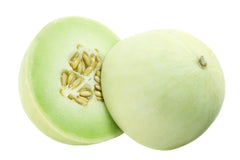
Little known to the general public is the silent epidemic of non-alcoholic fatty liver disease or NAFLD, which afflicts up to 40% of all Americans.1 The cause is multifactorial, including industrial chemicals and poor diets.
NAFLD particularly targets those who carry around excess weight. For the nearly 70% of Americans who are overweight or obese, that figure rises to a shocking 50%–100%.2-4
Ominously, NAFLD sets the stage for a progression of lethal diseases that can include cancer, atherosclerosis, and diabetes.5,6 Risk of death from all causes skyrockets more than four-fold in NAFLD sufferers — and more than eight-fold for early cardiac death.7
Because of both physician and patient ignorance, most victims of NAFLD are entirely unaware they have it. And no drug can halt this widespread disease's potentially lethal progress.
The exciting news is scientists have recently identified a novel intervention to halt two of NAFLD's core pathologic processes — lipid peroxidation, wherein excess liver fat turns rancid under continuous assault from free radicals, and rampant oxidative damage from disease-induced mitochondrial dysfunction.
How the Liver Protects Itself from Damage
When we are young, we're protected against NAFLD by two complementary mechanisms.
In the first, a liver enzyme called superoxide dismutase, or SOD, converts highly reactive free oxygen radicals into hydrogen peroxide. That delays but doesn't end the threat of lipid peroxidation because hydrogen peroxide itself generates new free radicals of its own.
To fully quench the free radical threat, a second set of antioxidant enzymes is recruited: catalase and glutathione peroxidase, which act on hydrogen peroxide and quickly convert it into harmless water molecules.
The Protective Enzymes Breakdown
The extraordinary oxidative stress inflicted on the liver in NAFLD, however, puts all of these protective enzyme systems into overdrive. Early in the disease, their activity is ramped up substantially in an effort to compensate — but eventually they become depleted and burn out.
As the body loses its natural primary antioxidant mechanisms, it accumulates lipid peroxidation products, and liver mitochondria begin to fail — which means liver cells don’t make enough energy to protect themselves.
Supporting the liver's mitochondrial antioxidant enzyme systems is a vital step in preventing the consequences of NAFLD.

Protective Liver Enzymes from Melons
Cucumis melo (where we get honeydew) directly replenishes essential liver protective enzymes like SOD, while at the same time stimulating glutathione peroxidase. This effectively targets lipid peroxidation and mitochondrial dysfunction in the liver and can protect against NAFLD.
Melon extract’s efficacy and safety are backed by published clinical research. In a placebo-controlled trial, a group of 70 volunteers, aged 30–55, taking 10 mg of melon extract per day experienced significantly greater energy levels, improved physical performance, and better mood after only four weeks.8
In today's world of industrial chemicals and food toxins, replenishing liver-protective enzymes naturally is essential to good health.
References
- Ann Hepatol. 2007 Jul-Sep;6(3):161-3.
- Available at: http://www.cdc.gov/nchs/fastats/overwt.htm. Accessed September 16, 2011.
- Ned Tijdschr Geneeskd. 2011;155:A3181.
- Aliment Pharmacol Ther. 2011 Aug;34(3):274-85.
- Gut. 2011 May 20.
- Nat Rev Endocrinol. 2011 May 10;7(8):456-65.
- Am J Gastroenterol. 2008 Sep;103(9):2263-71.
- Nutr J. 2009 Sep 15;8:40.
